Author: UC Berkeley Library
Summer reading: When Brute Force Fails: How to have less crime and less punishment
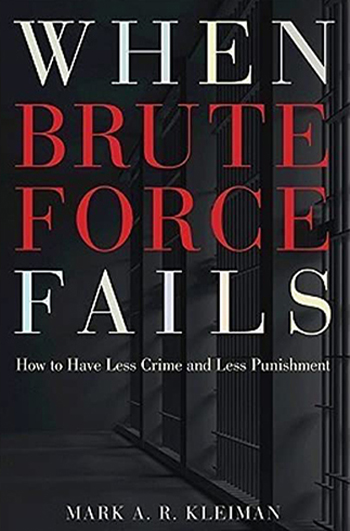 When Brute Force Fails: How to have less crime and less punishment
When Brute Force Fails: How to have less crime and less punishment
Mark A.R. Kleiman
Maybe the best public policy book of the last decade. The subtitle says it all: crime is costly but so is punishment (both not only in money); if we’re smart we can have less of both.
MICHAEL O’HARE
Professor of the Graduate School
Goldman School of Public Policy
This book is part of the 2022 Berkeley Summer Reading List. Stay tuned for more weekly posts!
Summer reading: Wagnerism: Art and Politics in the Shadow of Music
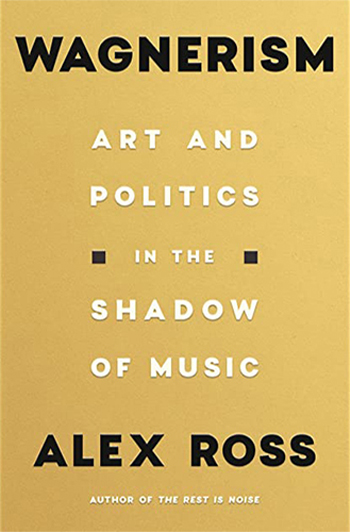 Wagnerism: Art and Politics in the Shadow of Music
Wagnerism: Art and Politics in the Shadow of Music
Alex Ross
Like music? The music of today, classical and popular, is impossible without Wagner. Like history? Philosophy? Sociology? Novels? Movies? It’s all here. The western world from the 1860s turned to Wagner in so many ways (for good and ill), and still does.
MICHAEL O’HARE
Professor of the Graduate School
Goldman School of Public Policy
This book is part of the 2022 Berkeley Summer Reading List. Stay tuned for more weekly posts!
Summer reading: Year of Wonders
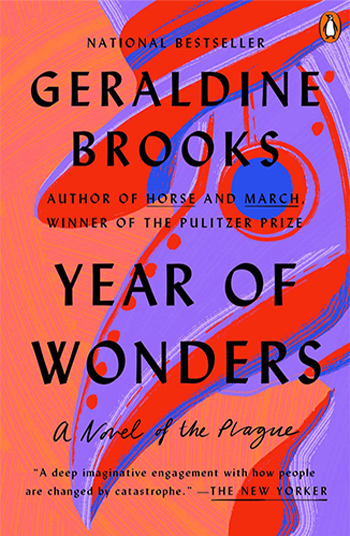 Year of Wonders: A Novel of the Plague
Year of Wonders: A Novel of the Plague
Geraldine Brooks
In 1665, a tailor in the village of Eyam, in England, opened a bundle of cloth from London. It had fleas, and they carried bubonic plague, and soon the villagers were dying. The village made an unusual decision—they quarantined, to prevent the spread of the disease outside their borders, and they rode out the plague in isolation from the outside world. This true story is related in wrenching and beautiful fictionalized detail by Geraldine Brooks, in her book Year of Wonders (which, incidentally, is on the American Library Association’s list of the top 100 banned books in the United States).
In the novel, we meet 18-year-old widow Anna Frith, a servant to the local church rector. Anna soon loses her two sons to the plague, and is drawn into the center of the community’s life in isolation as she cares for the sick and dying alongside the rector’s wife. The village turns in on itself, and Brooks explores the ways in which this plays out for good and evil, with sensitive and compelling detail about rural life and relationships in 17th century England. She also makes sure we root for Anna, who questions everything she has been taught to think about religion and nature, and who blossoms into a woman of strength and substance.
The parallels to today’s world and how it has faced COVID are clear, and many articles (such as this article from The Guardian) connecting Eyam’s experience to COVID can be found online. In each case, the role of community is central—to how we weather storms, and how we heal after loss.
ANN GLUSKER
Sociology, Demography, & Quantitative Research Librarian
Doe Library
This book is part of the 2022 Berkeley Summer Reading List. Stay tuned for more weekly posts!
Summer reading: Exit West
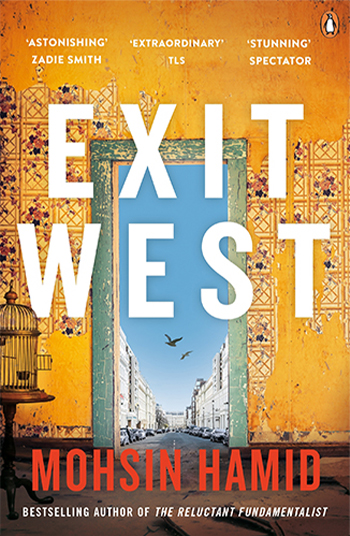 Exit West
Exit West
Mohsin Hamid
Exit West depicts a world where magical doors exist that allow for refugees to emigrate from their war-torn countries. The novel follows a pair of refugees who fall in love and try to make their lives better by finding new opportunities after their hometown becomes overrun with violence. Apart from being a good read, the book goes along with the theme of illuminating communities by offering great insight into issues faced by refugee communities that are often overlooked by society. Exit West was definitely an eye-opener for me; if you get the chance to check it out, I hope you enjoy it!
(Note: Exit West was also the On the Same Page pick for the incoming class in Fall 2020.)
ZAYD ALI
Mechanical Engineering major
Class of 2025
This book is part of the 2022 Berkeley Summer Reading List. Stay tuned for more weekly posts!
Summer reading: How Starbucks Saved My Life
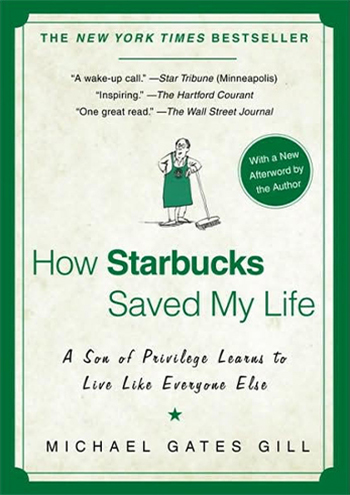 How Starbucks Saved My Life
How Starbucks Saved My Life
Michael Gates Gill
Don’t be fooled by its joking title. How Starbucks Changed My Life is an engaging memoir from Michael Gates Gill, the son of famed New Yorker writer Brendan Gill, who grew up in a mansion of 30-plus rooms, and who encountered many of the glamourous people and literati of his time in his youth: e.g., Ezra Pound, Ernest Hemingway, Jackie Kennedy. He eventually became an artistic director at the J. Walter Thompson Advertising Agency. He had a good career there until it was deemed that, in his mid-60’s, he was too old and was fired. Divorced, diagnosed with a brain tumor, he ended up living in an attic apartment, desperate for employment that offered health insurance. By pure coincidence, he was hired at a Starbucks located in a “bad” part of town.
He progressed from cleaning the bathroom to becoming a barista, along the way learning to respect, and befriend, youth from a lower-income social strata that he normally would have crossed the street to avoid during his time as an advertising executive. One of these young people was a fierce-looking ex-gang member who protected Gill one night when he was threatened by a customer who refused to leave at closing and pulled out a knife. After working at Starbucks, Gill would conclude that he preferred the company of the staff there to the corporate executives he used to interact with while at J. Walter Thompson. This is a compelling, enlightening narrative about How a Son of Privilege Learns to Live Like Everyone Else that puts a human face, and experience, to what is essentially a scathing critique of socio-economic class differences.
MIKE PALMER
Enrollment Manager
College Writing Programs
This book is part of the 2022 Berkeley Summer Reading List. Stay tuned for more weekly posts!
Summer reading: all about love: new visions
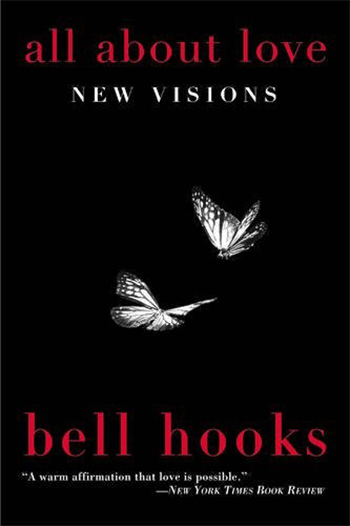 all about love: new visions
all about love: new visions
bell hooks
All About Love offers radical new ways to think about love by showing its interconnectedness in our private and public lives. In eleven concise chapters, hooks explains how our everyday notions of what it means to give and receive love often fail us, and how these ideals are established in early childhood. She offers a rethinking of self-love (without narcissism) that will bring peace and compassion to our personal and professional lives, and asserts the place of love to end struggles between individuals, in communities, and among societies. Moving from the cultural to the intimate, hooks notes the ties between love and loss and challenges the prevailing notion that romantic love is the most important love of all.
CAROLINE M. WILLIAMS
Associate Professor, Evolutionary Physiology
Department of Integrative Biology
This book is part of the 2022 Berkeley Summer Reading List. Stay tuned for more weekly posts!
Summer reading: Gordo
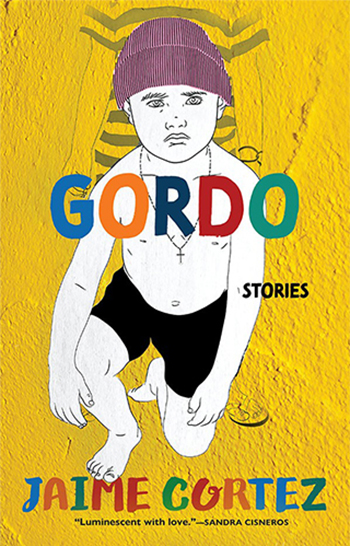 Gordo: Stories
Gordo: Stories
Jaime Cortez
Gordo is a collection of short stories which intimately describe the world of a migrant workers camp near Watsonville, California in the 1970s. Through his memorable cast of characters, Cortez explores the complexities of growing up Mexican American in California with humor and with a deep sincerity. The book confronts the difficulties of simultaneously belonging and not belonging in this country, a relatable experience that radiates far beyond Watsonville, California.
CHRISTINA VELAZQUEZ FIDLER
Digital Archivist
The Bancroft Library
This book is part of the 2022 Berkeley Summer Reading List. Stay tuned for more weekly posts!
Summer reading: Interior Chinatown
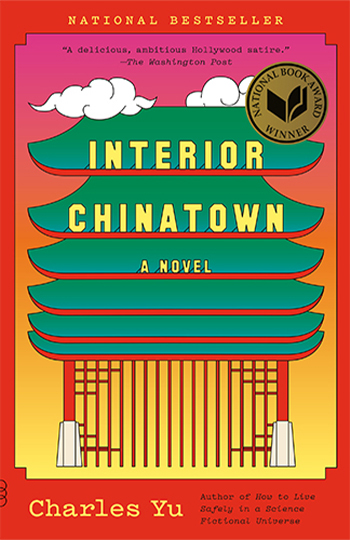 Interior Chinatown
Interior Chinatown
Charles Yu
In this genre-bending book, all the world’s a stage, and all the people merely players. Some have named, starring roles. Others are limited to non-speaking background roles such as Ethnic Recurring, Generic Asian Man Number Three, and Delivery Guy. Such are the roles available to our protagonist, Willis Wu, whose highest aspiration is to become Kung Fu Guy. By the end of the book, Willis comes to recognize the invisible, historical forces circumscribing his world, and struggles with what it would mean to break free and go off-script—and invites us to do the same. One of our student reviewers for the 2022 On the Same Page program praised Interior Chinatown for its “unique and compelling examination of Asian-American identity and media representation.” Another student reviewer described the book as “storytelling like I have never seen or read before.” Exploring an American history of immigration, marginalization, assimilation, racism, and mass media, Interior Chinatown asks, “Who gets to be an American? What does an American look like?”
AILEEN LIU
Director of Curricular Engagement Initiatives
College of Letters & Science
This book is part of the 2022 Berkeley Summer Reading List. Stay tuned for more weekly posts!
Summer reading: Caste: The Origins of Our Discontents
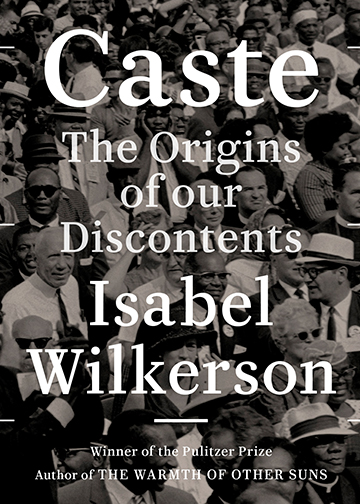 Caste: The Origins of Our Discontents
Caste: The Origins of Our Discontents
Isabel Wilkerson
Isabel Wilkerson artfully weaves individual experiences and historical events, as well as data and scholarship, to re-see the artificial social construct of race as the visible manifestation of an invisible caste structure. As she notes, “Caste is the bones, race the skin.” Wilkerson lifts our gaze by offering possible solutions for the undoing of this centuries-old system of dehumanization, which continues to do harm through both passive and active enforcement by those who benefit from the structure. I also highly recommend the audiobook recording, as read by Robin Miles.
GISÈLE TANASSE
Film & Media Services Librarian
Media Resources Center
That’s it for this year’s Summer Reading List! View this book on Overdrive. Tune in again next year for more recommendations!
Summer reading: Neon Vernacular: New and Selected Poems
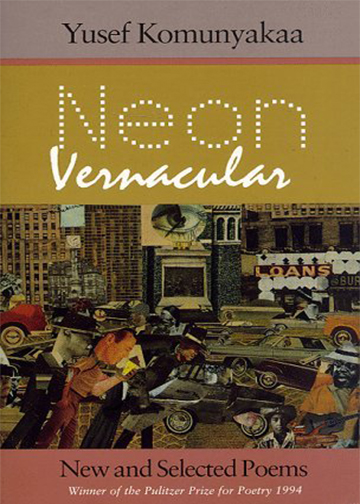 Neon Vernacular: New and Selected Poems
Neon Vernacular: New and Selected Poems
Yusef Komunyakaa
In this Pulitzer Prize-winning collection, Yusef Komunyakaa interweaves history and memory. With inventive language and raw emotion, Komunyakaa tackles varying subjects from the Vietnam War, to the Jonestown massacre, to jazz greats, to his childhood in Bogalusa, Louisiana. As readers, we embed with soldiers in Vietnam (“we held our breath,/ready to spring the L-shaped/ambush, as a world revolved/under each man’s eyelid”); we mourn the passing of Thelonious Monk (“Tonight’s a lazy rhapsody of shadows/swaying to blue vertigo/& metaphysical funk”); and we witness, from a son’s point of view, his complicated relationship with his father: a man who uses “wire/& sunlight to train/The strongest limbs,” who “hated my books,” but who “steered us through the flowering/Dogwood like a thread of blood.” Komunyakaa challenges us to gaze with unflinching clarity and deep introspection at the past—of singular people and of the nation–and to fashion guides for moving forward from what we observe and learn. “Hard love, it’s hard love,” he writes in Copacetic Mingus, and reminds us, as he closes Corrigenda, “If you must quote me, remember/I said that love heals from inside.”
LUISA GIULIANETTI
Curriculum Coordinator
Centers for Educational Equity and Excellence (CE3)
This book is part of the 2021 Berkeley Summer Reading List. View this book on Overdrive. Stay tuned for more weekly posts!